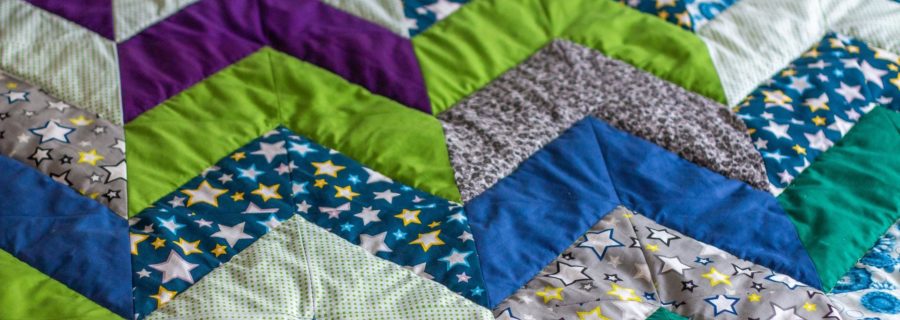On the afternoon of October 25th, I attended my first Blanket Exercise with the wonderful and charismatic Shannon Monk. The Chamber staff, along with the Accessing a Skilled Workforce Taskforce, had been toying with the idea of hosting a Blanket Exercise for a few months. Then the announcement of Truth and Reconciliation Day was announced across the country. It was time to stop talking about hosting the event, and make it happen.
Shannon Monk, owner of Sakatay Global, has been a member of the Chamber of Commerce for a few years. She participated in Chamber events like ‘Wonder Women’ in the past, and she was an amazing resource for us as we learned how to host our own Blanket Exercise.
Like all events during COVID, our dates got shuffled. We had conversations around vaccinations and masks before we finally set a date and invited our staff, volunteers, and members to join this unexpected journey with us.
Close to 60 participants joined us at Pier 21 to learn about the history of injustices done to Indigenous peoples throughout Canada and what reconciliation truly means today. Shannon was our host, but she brought along a team to help execute the event. We began our day with a smudging ceremony and a land acknowledgment. Chris Googoo, Chief Operating Officer, Ulnooweg and Chamber Board Director, welcomed our guests on behalf of Ulnooweg and the Halifax Chamber.
The room was set up in a circle of chairs, with about twenty blankets on the floor in the middle of the circle, all touching and slightly overlapping. We were told that these blankets were representative of Turtle Island. We were then asked to write names of loved ones under 16 years of age on a pink piece of paper and carry them with us. Many of us were also given a scroll to read, when prompted. There was a little time of simply listening before we all rose to our feet, took off our shoes, and chose a blanket to stand on.
Shannon and her team filled the roles of European settlers and narrators of Indigenous history, moving through time. The exercise began in the 1400s, the period of early colonialization. We each read our scripts, which often contained brutal facts about how Indigenous populations were vastly decimated over hundreds of years. Some of us lost our loved ones (represented by the names we wrote on our pink pieces of paper). The names were taken from us with little regard.
As history unfolded, the blankets grew smaller. We were told to vacate our blanket and return to our chairs. Some were asked to leave because of disease, starvation, two-spirit identities or because they were placed in residential schools. Our group of 60 people soon whittled down to less than 10. The blankets were almost all removed. At the end of the exercise, the remaining 10 people were left isolated on tiny portions of land and without loved ones. It felt unfathomable, and I held back tears trying to process that this was part of Canada’s history.
This is truly an experiential learning method, and it’s something that non-Indigenous people need to experience to understand what Indigenous populations have experienced over hundreds of years.
We completed the day with a discussion on how we felt afterwards. The vulnerability and openness of people I’ve known for years, and people I had met that day, floored me. We all come from different places with different experiences. Listening to some of the firsthand experiences of people in the room broke my heart. It broke my heart, but it also allowed me to understand and gave me a different view of the challenges that are still prevalent today.
I believe we are making progress in reconciliation, even since I was in high school in the 1990s. However, pausing to learn and listen to the original landowners of our nation, to be truly empathetic, is something that Indigenous peoples deserve. We need to make time for it. Education is the key to understanding and celebrating our differences. Attending and immersing yourself in a Blanket Exercise is one path toward reconciliation.
Please watch for our next Blanket Exercise, which we plan to host annually, in September.
Resources:
Sakatay Global: sakatay-global.teachable.com
Mi’kmaw Native Friendship Centre: mymnfc.com
Ulnooweg: ulnooweg.ca
Recommended Books:
A Mind Spread Out on the Ground by Alicia Elliott
Five Little Indians: A Novel by Michelle Good
21 Things You May Not Know About the Indian Act by Bob Joseph
My Conversations with Canadians by Lee Maracle
Moon of the Crusted Snow by Waubgeshig Rice
Seven Fallen Feathers by Tanya Talaga
From the Ashes by Jesse Thistle
< Back to Articles | Topics: Working for you

